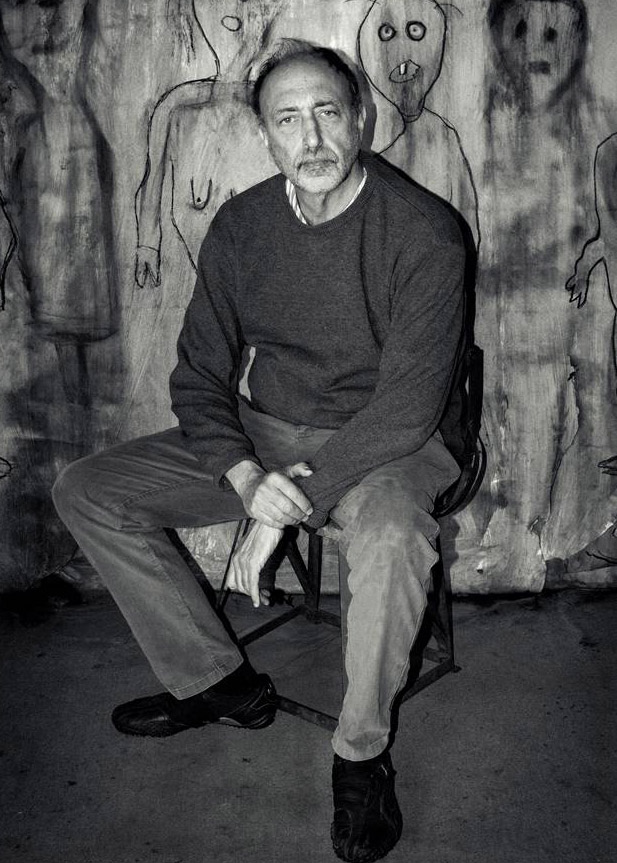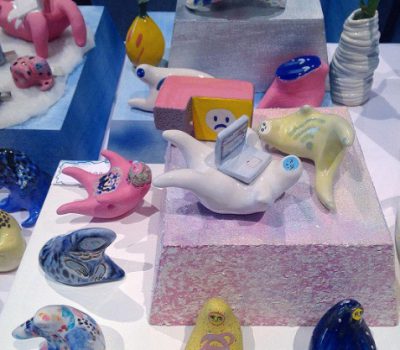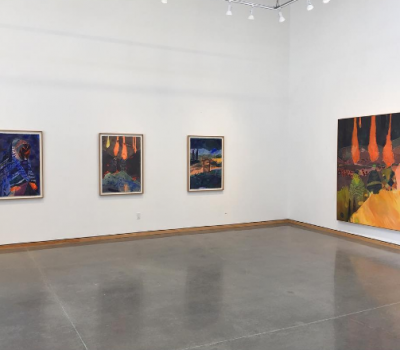Roger Ballen’s “Theatre of the Mind” Exhibit At Izzy Gallery Is A Visual Adventure
They say that a picture tells a thousand words, but Roger Ballen disagrees. The 66-year-old photographer is a consummate professional when it comes to communicating through his visuals.
However, there’s a stark difference between the average vacation selfie and the compelling, provocative and broody images captured by the influential photographic artist. The difference is that no captions are needed when looking at a signature Ballen image, because the powerful black and white photos truly speak for themselves.
“If you can actually describe the picture in words, it’s probably a bad photograph. I don’t try to tell a story, I just make strong photographs,” he says.
Recently, Ballen was in Toronto for the opening of his Theatre of the Mind exhibit at Izzy Gallery, which runs until November 19. The artist, who was born in New York City in 1950, has lived in South Africa for over 30 years. Ballen’s most current Canadian stop brought him to Toronto’s trendy Yorkville neighbourhood, where he spoke to the crowds about his retrospective.
The exhibit covers memorable works by Ballen, which date back to the early 1980s. However, Ballen himself is hesitant to describe his favourite pieces, and sees the individualism in each of the unique and captivating works instead.
“I don’t have favourites. Some pictures strike me in one way, and other pictures strike me in other ways,” he explains.
Like many creative souls, Ballen realizes that there is tremendous beauty in nature, but is never quite sure where his next photograph will be found. Certainly, the arresting landscape of South Africa has influenced his work, and his adopted hometown of Johannesburg has set the stage for many of his photographs.
“The most striking things are always the things I find in nature, whether it’s a volcano or being on the sea during a violent storm or being in a quiet jungle. These are always the places that I have the most affinity to,” he says.
Ballen quips that during the 1980s, he was “probably the best travelled person in South Africa.” Staying true to his love of the unconventional, his numerous travels around the nation led him further than the tourist attractions of Cape Town.
Photo: Selma Blair, 2005 (Roger Ballen)
Away from the South African capital and port city, Ballen was drawn to the Western Transvaal area (which is now known as Northwest Province) and the Eastern Cape. Citing his love of seclusion, Ballen says that these lesser known places are his personal favourite South African locations.
With five decades of experience taking photos, Ballen is no doubt an international household name in the world of photography. Yet before he launched his career as a photographic artist, he was just a young American boy whose mom worked at Magnum Photos during the 1960s. Ballen’s mother was a photo editor who joined forces with pioneering early photographers André Kertész and Henri Cartier-Bresson and also opened a photo gallery.
Understandably, Ballen himself was inspired by his brilliant and passionate mother, who introduced him to photography. “In those days, photography wasn’t a thing that people collected; it was really a brave step to start a gallery,” he muses.
Perhaps it was this early interest in the photographic arts which compelled Ballen to pursue photography. Although he studied geology at the University of California, Berkeley and worked as a geologist, his profession eventually paved the way for his passion for photography. Since then, Ballen has witnessed the rise of the digital photo, which has forever altered the way society views images.
“It’s just inundated the market and the world with imagery. Whether it’s good or bad, everybody is taking pictures now. I think the value of the images has declined,” Ballen declares. From the darkroom to the digital age, however, he has never stopped shooting.
Thirty years ago, creating a stellar photograph required mastering the art, developing film and then producing a completed image. Today, Ballen stays true to his signature minimalist aesthetic, which includes meaningful and haunting shots of marginalized, working class and mentally ill South Africans. With photos which experiment with themes of architecture and the metaphor of the mind, Ballen captures human vulnerability on film.
So, what role do images play in today’s diverse human experience? According to Ballen, a photograph is a statement of its own, a form of visual storytelling at its finest. “The mind understands the pictures; the pictures need an enigma or edge to them that’s purely visual. They are visual statements,” he concludes. If Ballen’s own striking works are any indication, the Theatre of the Mind is a visual adventure, with a message which need not be spelled out.





